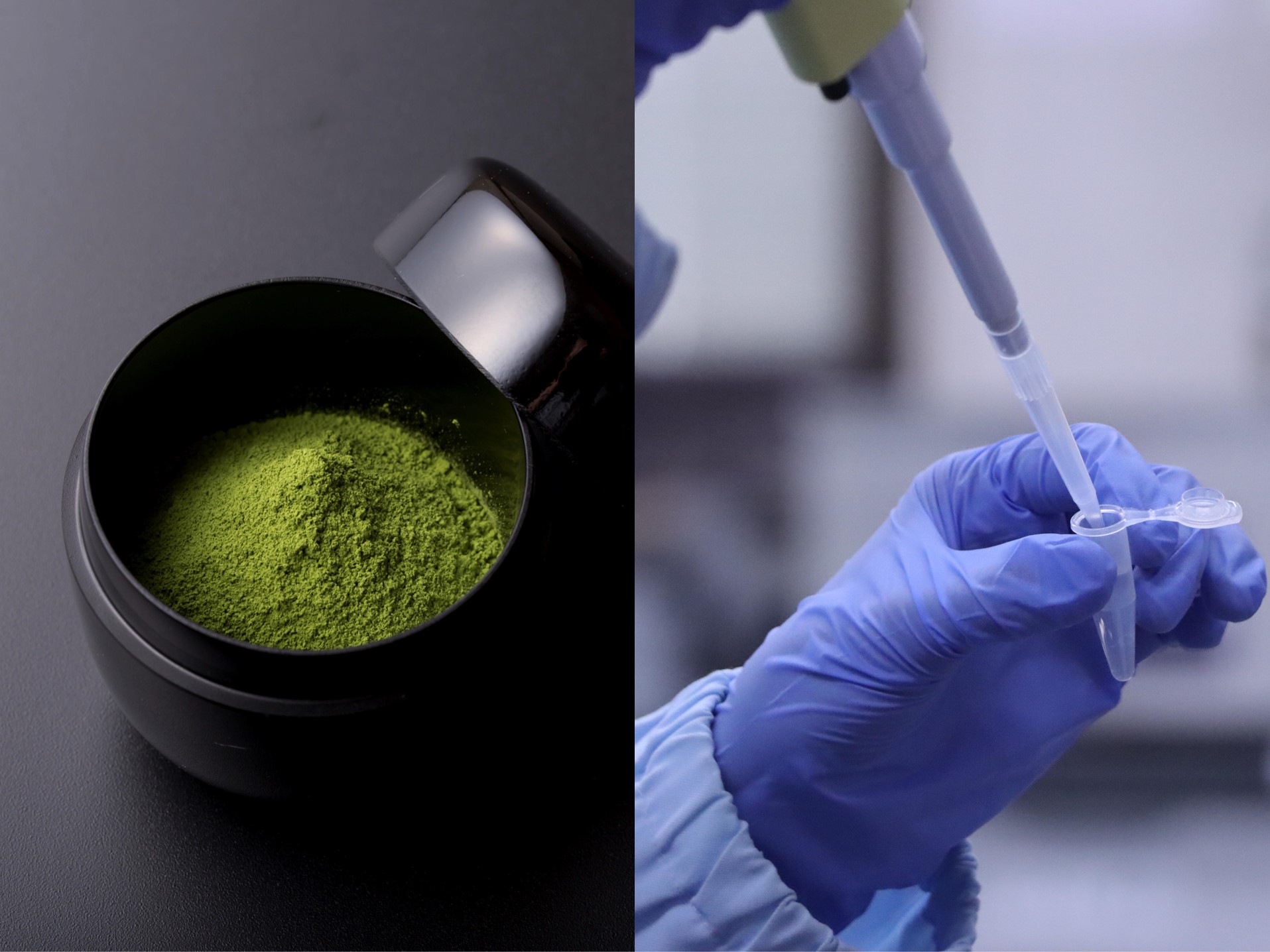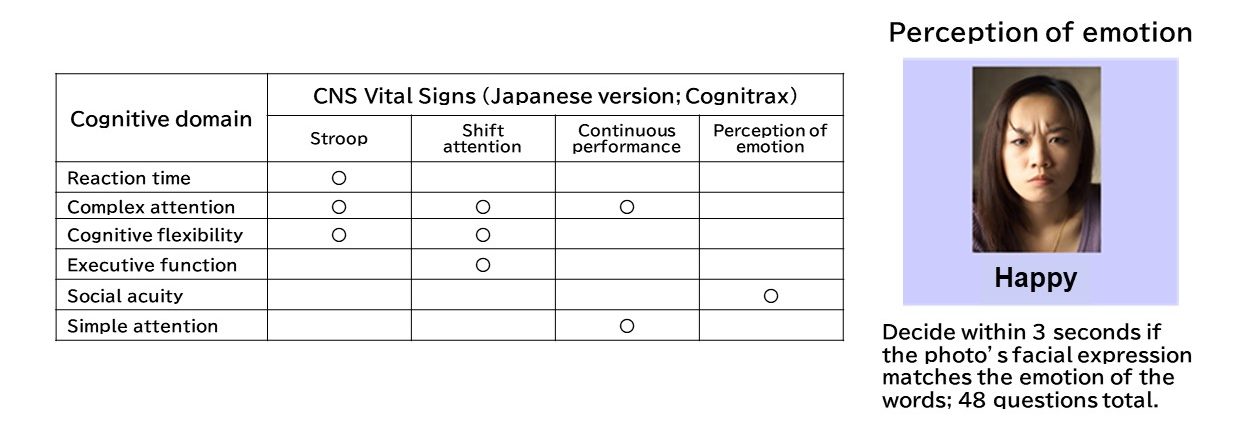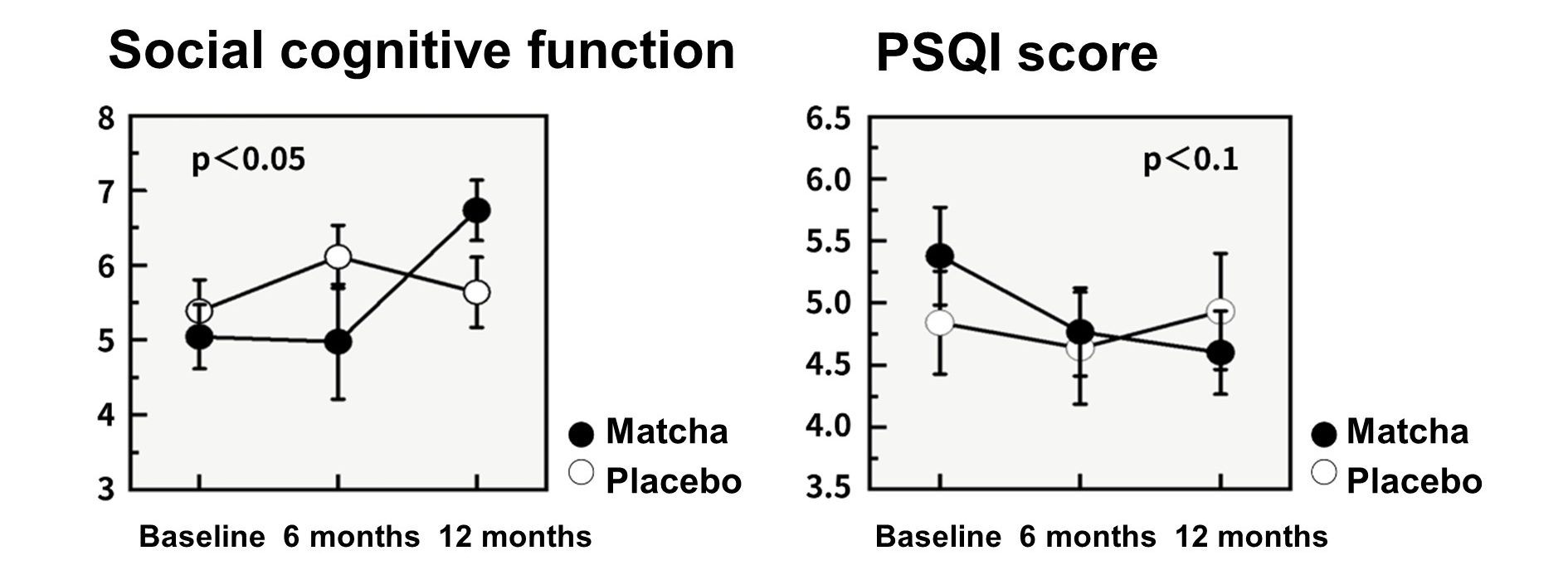Effects of Matcha on Social Cognitive Function (emotion perception from facial expressions) and Sleep Quality
Clinical trial for elderly people with mild cognitive impairment (MCI) and subjective cognitive decline (SCD), published in the journal PLOS ONE on 30 August.
MCBI, Inc. (Chief Executive Officer: Yoshihisa Tokumi; headquartered in Chiyoda-ku, Tokyo), University of Tsukuba (President:NAGATA Kyosuke;Tsukuba City, Ibaraki), Memory Clinic Toride (President:Takashi Asada;headquartered in Toride City, Ibaraki ), and ITO EN, Ltd. (President: Daisuke Honjo; headquartered in Shibuya-ku, Tokyo) conducted a clinical trial titled “A Study to Evaluate the Effect of Matcha on the Prevention of Cognitive Decline” targeting elderly individuals with mild cognitive impairment (MCI), a pre-stage of dementia, and subjective cognitive decline (SCD). The study revealed that continuous intake of matcha improved social cognitive function and showed a tendency to improve sleep quality. This study was published in the academic journal PLOS ONE on August 30th.
Principle investigator:Kazuhiko Uchida, MD, PhD (CEO, MCBI), Tetsuaki Arai, MD, PhD (Prof, Institute of Medicine, University of Tsukuba), Takashi Asada, MD, PhD (Prof, Director of Memory Clinic Toride), Takanobu Takihara (Director of Central Research Institute, ITO EN, LTD.)
※Uchida K. et al., Effect of matcha green tea on cognitive functions and sleep quality in older adults with cognitive decline: A randomized controlled study over 12 months. PLOS ONE|Published: 30 August 2024 https://doi.org/10.1371/journal.pone.0309287

Matcha has long been a favorite drink in Japan, and its main ingredients, ‘theanine’ and ‘catechin,’ have been reported to have various health benefits. Theanine is known for its stress-relieving, sleep-improving, and working memory-improving effects, while catechin has blood cholesterol-lowering, body fat-lowering, and working memory-improving effects. Additionally, it has been reported that daily intake of 2 g of matcha powder for 12 weeks can improve the accuracy of ‘attention’ and ‘judgment’ in middle-aged and elderly individuals.
○ Clinical Trial
Ninety-nine participants, including 64 with subjective cognitive decline and 35 with mild cognitive impairment, were randomized, with 49 participants receiving 2 g of matcha and 50 participants receiving a placebo daily. Participants were stratified based on two factors: age at baseline and APOE genotype. Changes in cognitive function and sleep quality were analyzed using a mixed-effects model. The placebo capsules, which were identical in appearance, color, and odor to the matcha capsules, were composed of cornstarch. Participants were required to consume nine capsules of matcha (equivalent to 2 g of matcha) or placebo daily at any time. As the amount of matcha used in the traditional tea ceremony, Tea Otemae, is 2 g, this was set as the daily intake quantity in the study. Changes in each evaluation outcome over the 12 months from the start of the trial (baseline) were analyzed using a mixed-effects model.
○ Effects of matcha on social cognitive function (emotion perception from facial expressions) and sleep quality
Regarding cognitive function, there was no difference between the matcha group and the placebo group in the scores on neuropsychological tests such as the MMSE-J and MoCA-J, which are used for screening dementia and MCI. However, when cognitive function was assessed using CNS Vital Signs(Japanese version; Cognitrax), the matcha group showed significantly improved social cognition, specifically in the accuracy of emotion perception from facial expressions as measured by the facial expression recognition test, compared to the placebo group (Figure, left). Additionally, when sleep quality was evaluated using the Pittsburgh Sleep Quality Index (PSQI), the PSQI score decreased in the matcha group, indicating a trend toward improved sleep quality (Figure, right).


This research team has been working to scientifically understand the value of tea and to make recommendations for improving people’s lives, enabling them to “live a full life in the era of 100-year lifespans.” This study has demonstrated that matcha tea has a novel effect on enhancing social cognitive function, specifically the perception of emotions from facial expressions. Social cognition is a criterion for the diagnosis of dementia according to the DSM-5 (Diagnostic and Statistical Manual of Mental Disorders, 5th edition, published by the American Psychiatric Association) and is important not only as a cognitive function in the elderly but also in terms of communication skills, daily life, and social participation.
It is noteworthy that despite matcha’s caffeine content, there was no adverse effect on sleep quality; in fact, there was a trend toward improvement. These findings are significant because maintaining sleep quality is also expected to help preserve cognitive function.
Moving forward, the team will continue to analyze the effects on improving social cognitive function, the mechanisms behind them, their relationship with sleep quality, and other test results. The goal is to propose beneficial uses for the elderly and to continue research toward realizing a well-being lifestyle for this population. Since green tea and matcha are familiar to many older adults and can be consumed daily, it is hoped that further research will lead to their inclusion in dementia prevention programs run by local governments and various communities.
Explanation of Terms
MCI: Mild Cognitive Impairment
MCI is a precursor to dementia, including Alzheimer’s disease. While memory loss is noticeable, it does not interfere with daily life. It is estimated that 40% of individuals with MCI will develop dementia, such as Alzheimer’s disease, within four years.
SCD: Subjective Cognitive Decline
SCD is considered a pre-stage of mild cognitive impairment (MCI). Although there is no objective decline in cognitive function, the individual is aware of their memory loss.
Working Memory, Active Memory
Working memory is a brain function that temporarily retains sensory information from the external environment as short-term memory for a few seconds to tens of seconds and uses it for other cognitive processes. It is often associated with short-term memory, but it is not purely short-term memory; rather, it refers to a function that utilizes short-term memory to perform other cognitive tasks and manipulate memory content. (Source: Dictionary of Brain Science)
Mixed-Effects Model
A mixed-effects model is a statistical approach that models both overall trends and individual variability by accounting for both fixed and random effects, particularly when data is hierarchical or clustered.
CNS Vital Signs
CNS Vital Signs is a computer-based cognitive function test comprising 10 questions. In this study, to avoid overlap with other neuropsychological tests, the following tests were used: the Stroop test (assessing whether the color and meaning of a word match, e.g., the word “blue” written in black), Attention Shift Test (selecting a shape that matches the instruction “same color” or “same shape,” which randomly switches for the presented shapes △□), Sustained Processing Test (pressing a key only when a specific character appears among randomly displayed characters), and a Facial Expression Recognition Test (determining whether the facial expression shown in a photo matches the emotion description (calm, happy, sad, angry) written underneath).
PSQI-J: Pittsburgh Sleep Quality Index
The PSQI-J is the most widely used sleep evaluation scale, allowing individuals to assess their overall sleep quality through a self-assessment format. It asks about sleep over the past month, and a score of 6 or more suggests the presence of a sleep disorder.
Conflict of Interest
This study was conducted under a joint research agreement between University of Tsukuba Hospital, MCBI Inc., ITO EN, LTD., and Shimadzu Corporation.
